In the fast-paced Western world, we’re taught that being productive is the most important thing you can do every day. Otherwise, what are you even doing?!
Checking off lists, producing visible results, and working “hard” are all ways we’ve been inadvertently taught to measure our worth. We even feel like we don’t deserve good things unless we “put in the work” for it first.
In this article, we’re going to go back to the drawing board and look at what being productive even means, what it looks like, and redefine it so that we can elevate the quality of our mindsets and emotional states.
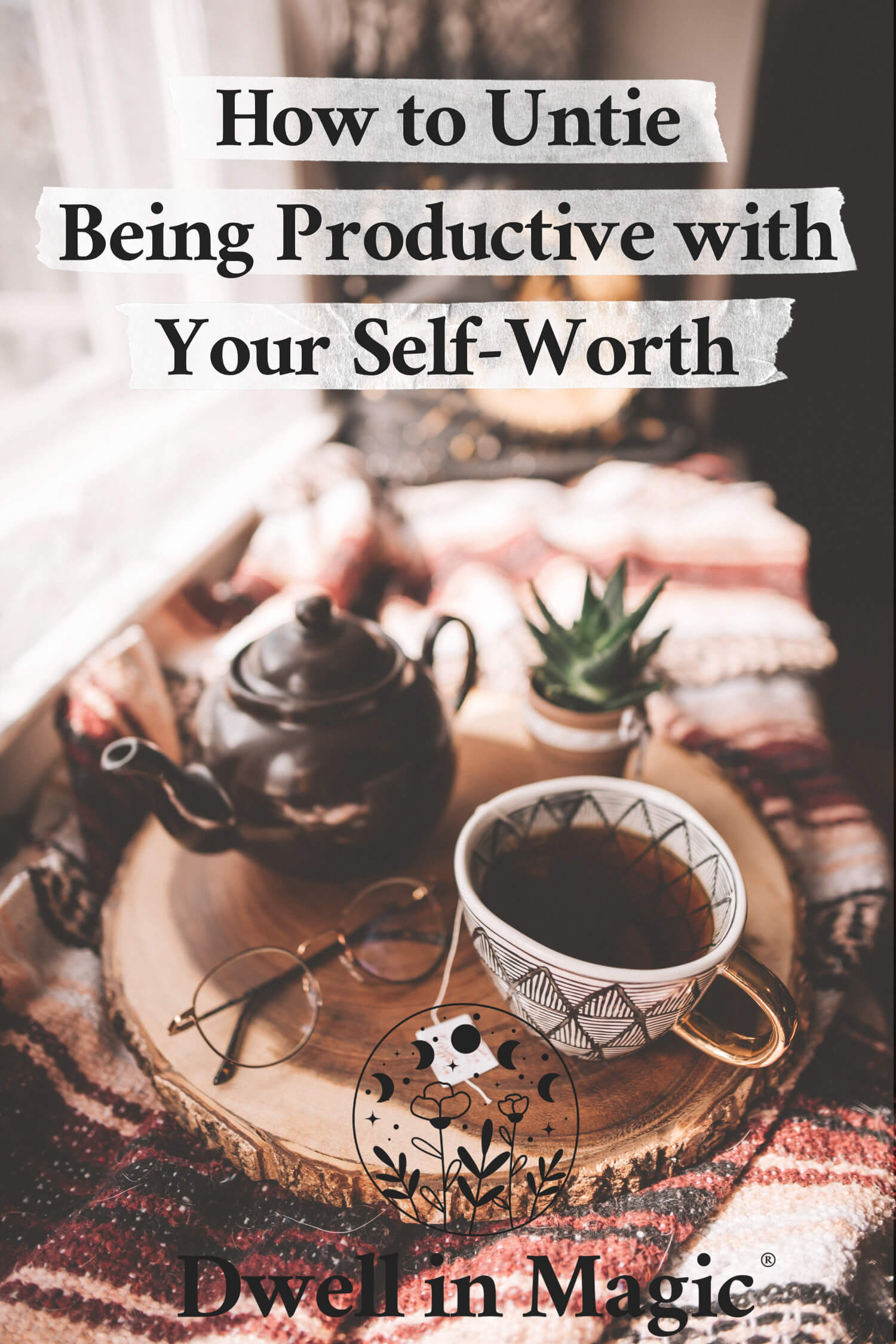
What does it mean to be productive?
According to most dictionary definitions, to be productive means to produce something in abundance.
We humans, in our little physical world, can most times only equate this definition to physical things. Ticking off boxes, creating tangible physical results, moving our bodies constantly, and physically fitting in as many things as we can in a day.
Is this really productivity though? And what are we using to define being productive? Running yourself physically into the ground?
Most people wear exhaustion like a badge of honor for everyone to see, and that’s because they’ve been taught to tie physical doing with their level of self-worth.
We believe we have to do in order to be valuable–in order to even deserve to exist!
What is productivity, truly?
Productivity is taking action in a way that benefits you emotionally, mentally, physically, or spiritually.
Sometimes checking off a to-do list benefits you mentally, but if you’re ignoring other aspects of your well-being, then it’s not truly productive for your overall health.
Physical labor is one form of production, but what most people don’t factor in is the immense power and importance of producing a vibrant emotional state, for example.
This isn’t physically tangible however, therefore it’s not usually counted in when we factor in how productive we were for the day.
Sitting on the porch doing nothing but drinking your morning coffee could possibly be the most productive thing you did because it created a positive emotional state. And yet, most people would say “Well I better stop sitting here on my butt and go get my day started.”
The positive emotional state created while having your coffee elevated your vibration, possibly opened you in a way you wouldn’t have otherwise been to new ideas, created a sense of inner peace and tranquility, and gave you a moment of deep self-connection.
The person next door could be running around checking off their to-do list with their coffee in hand, seemingly being “more productive” and fitting more into their day. They also might feel their throat getting a little sore, a headache coming on, or possibly their neck tension getting worse.
How to detach productivity from self-worth
We can begin to detach productivity from our self-worth as soon as we shift away from believing that physical action is the only way to measure being productive.
1. Redefine productivity
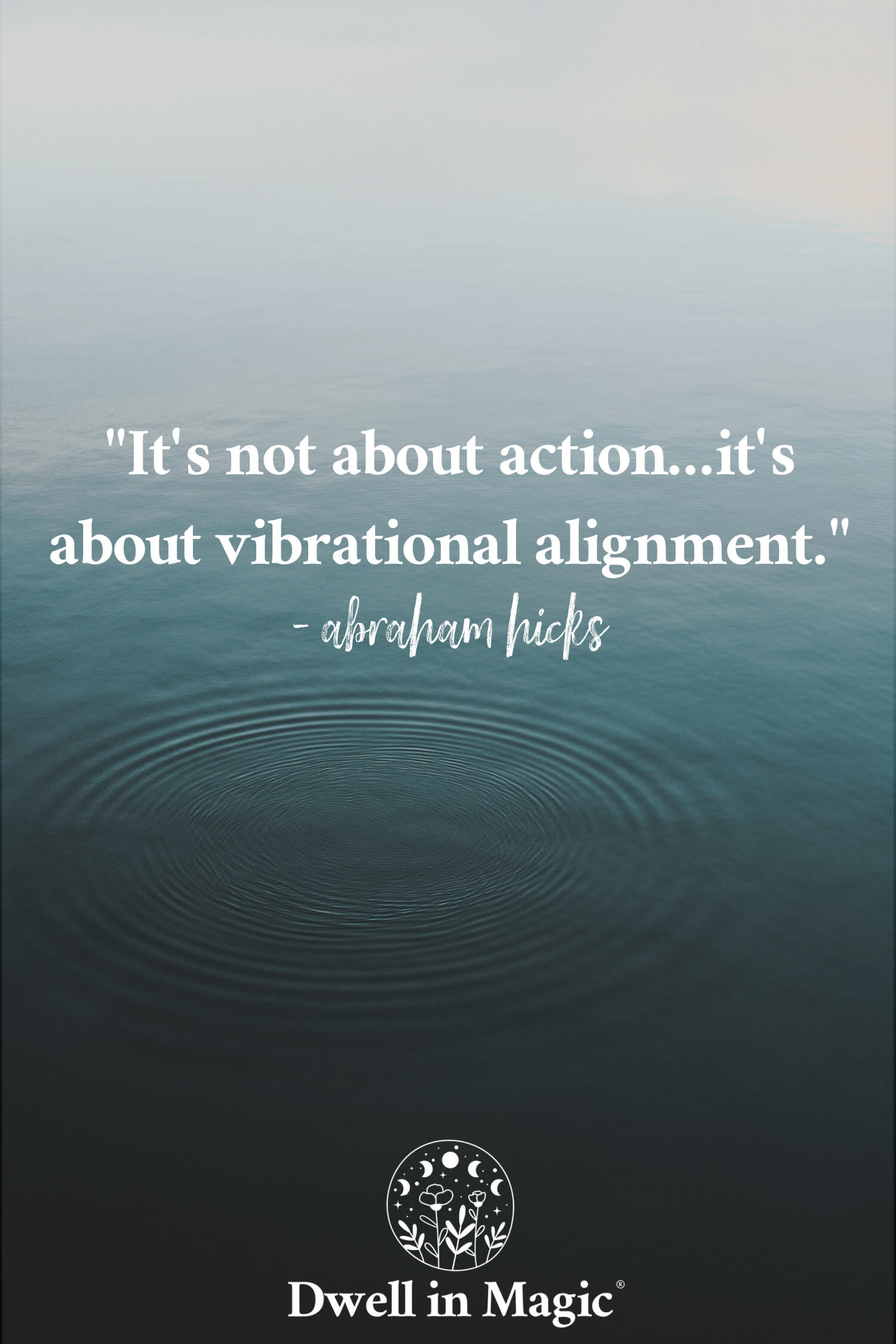
First things first–in order to detach your self-worth from productivity, there needs to be an updated understanding of what being productive even means.
Older generations were purely physically focused. Emotional and mental states were rarely discussed and only done so with shame because of how misunderstood it all was.
In the personal development field, it is now a common understanding that our physical reality is created through our emotional and mental states. Meditation, journaling, quiet reflection, reading, and anything that promotes your emotional and mental well-being should be counted as being productive.
These kinds of things can even count the most considering the huge effect and impact they have on our physical reality!
The old way of being productive was to take physical action regardless of how you’re feeling, and only do things that feel good after your physical work was done.
The new way of being productive is to line up your emotional and mental states first, and then take the physical action you’re inclined to take after that.
Does dinner need to be made? Yes, of course, there are physical actions that we have to do every day, but the spades of other physical activities we pile onto our to-do lists shouldn’t trump or out-value the more zen activities that create emotional and mental well-being.
2. Facing shame head-on
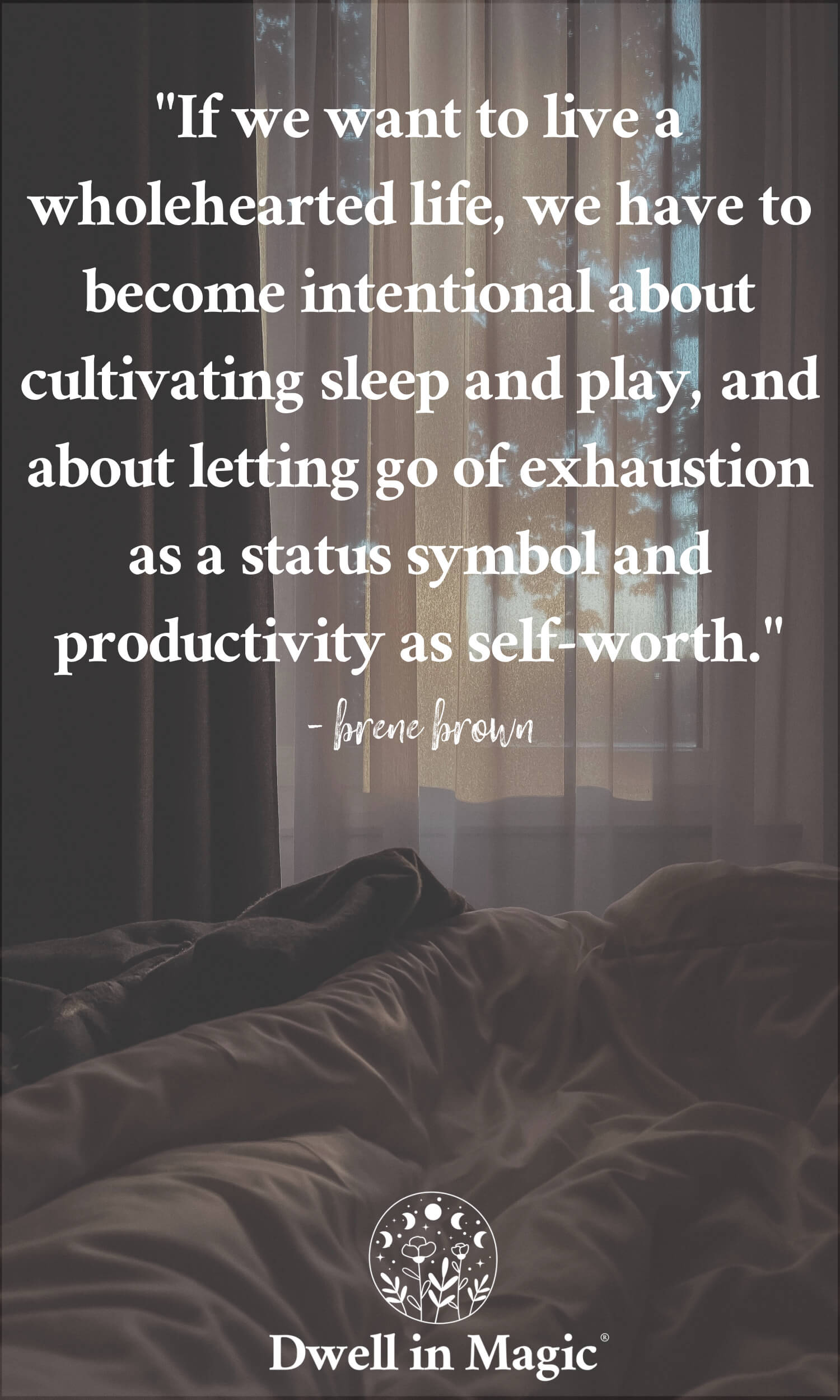
So many of us feel like we have to earn our right to be–to sit down, to enjoy quiet moments, to simply bask in our own existence.
When I became a parent, I was able to see how strong this productivity shame was. If my partner was around, I had to be up and doing something, or explaining to him what I had done that day, and I noticed he did the same thing.
In a society that taught us to “work hard” for outside approval, it’s only natural that at some point along the way, we began to tie our self-worth and self-approval with being “productive.”
When dealing with any kind of emotional response that I’ve carried for a long time, I find it easiest to just acknowledge when I catch myself doing it, and then be gentle with myself about it. No need to berate myself or further induce negative emotions over it. I just notice and let it be.
After noticing that you’re experiencing shame over not being productive, or taking action to be productive from shame, you could try asking yourself if there’s something else you’re feeling called to do, or if there’s something you could do that would make the current task more enjoyable for you.
Why is this important? Because your emotional and mental health is so important and creates your reality. The more we practice this, the more we will begin to see the value in doing things that promote our overall well-being.
3. The value of feeling
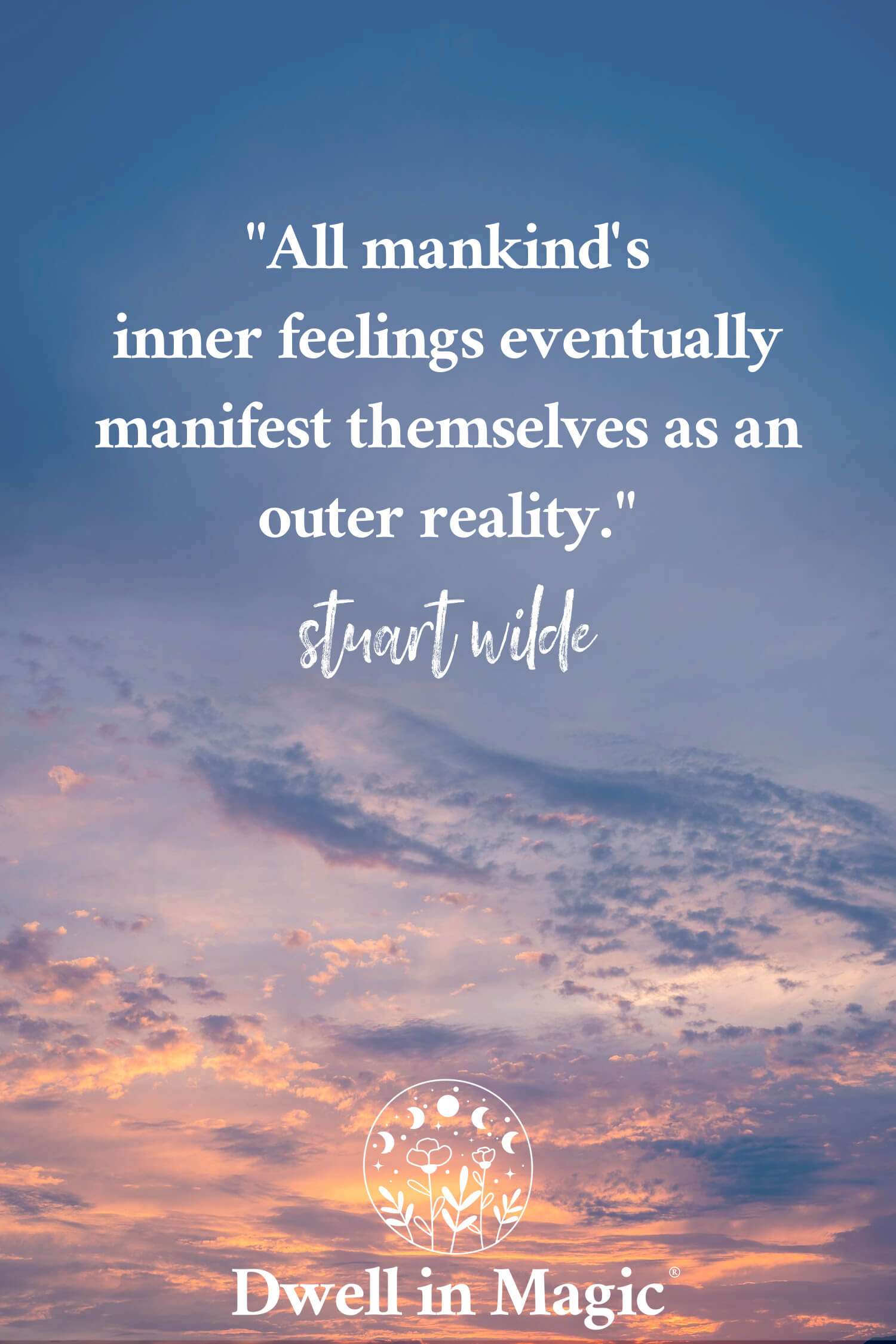
You’ve been taught your whole life that doing is what creates anything of value. Yet we now know that reality is creating from our feeling place, which means that the things you do for your emotional and mental states will create more value than simply doing.
I bring this up again because we don’t place enough value on activities such as meditation, journaling, going for walks outside, taking long baths, reading books, or doing things that generally get labeled as "recreational hobbies".
We believe these things should come after we check off all of our do-to lists, when in reality these very things would align our lives in such a way that we end up doing less while creating more impact.
I’ve witnessed over and over again people who have generated a lot of financial abundance, for example, and yet they aren’t hustling or over-working themselves. Instead, they placed a lot of value on creating a healthy emotional and mental state first and then took action.
When we take action from a high vibrational state, it’s like producing twice the amount in half the amount of time. Why? Because you’re tuned into the same frequency as other high vibrational things!
What could take years to accomplish in a low vibrational state can take weeks or months when your mindset and emotional state are healthy.
Start realizing the importance and value of feeling good, rather than only focusing on what you’re producing physically. When you feel good, your body heals, ideas flow, people are attracted to you, and tasks are accomplished so much easier.
4. Tuning into self-worth
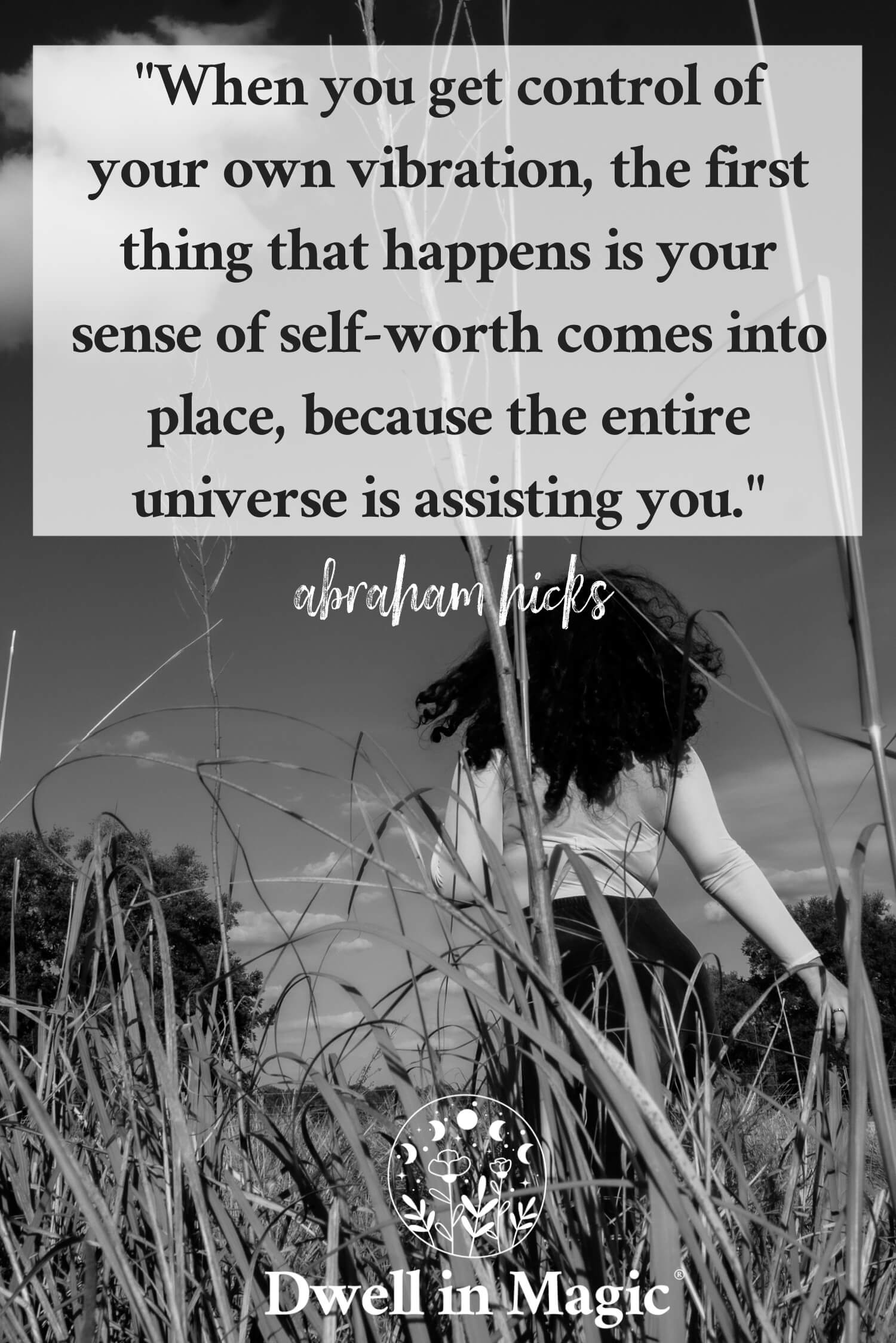
If your self-worth is not in the doing, where is it? It actually exists at all times, so it’s something you either tune into or don’t. You can’t earn it or lose it, because it already just is.
Rather than seeing our self-worth as something we can accomplish or not, start to see it as something that you’re sometimes in alignment with and other times not. I feel like this is a more realistic way of viewing it.
As you practice tuning into it, you’ll more often be there in it, even though there will still be times when you don’t feel it and that’s completely normal. Believing we can accomplish self-worth permanently creates even more guilt and feelings of despair when we find ourselves in moments of a lower vibrational state.
So how to tune into the ever-existing reality of your self-worth? By taking care of your emotional and mental states! Am I sounding like a broken record yet? I hope so!
When we’re feeling good and in alignment with who we really are, we will naturally tune into feelings of self-worth and self-love. You’ll know because you’ll feel good!
Abraham Hicks talks about our inner being always playing a game of Marco Polo with us. The closer we get to our inner being, the better we feel, and the further away we get, the worse we feel! It’s as simple as that.
When you aren’t feeling good, you’re believing or thinking something that your inner being doesn’t agree with. And your inner being is always rooted deeply in your self-worth, which is why I say your self-worth is already in existence and all you have to do is tune into it.
To recap
To summarize everything I’ve said here:
- Redefine productivity to include taking any action that benefits you emotionally, mentally, physically, or spiritually.
- Notice and acknowledge productivity-related guilt when it arises. What are being drawn to do in this moment? Follow the feel-good breadcrumbs.
- Feel before you do, it’s much more powerful.
- Tune into self-worth by being in alignment with yourself.
EXPLORE FURTHER
Thank you for reading, I hope you enjoyed this article and found something to take away with you.
To receive my weekly, self-care focused email that inspires you to go deeper inside the magic that is you, sign up for the Dwell in Magic weekly newsletter.
If you’d like weekly digital resources, guidance, and community with me and others, join the Dwell in Magic Patreon. We have a book club too!
For self-paced inner work, visit the shop for transformational bundles and guides.
With love,
Jessica
- Effortless Manifesting: A Simple 4-Step Practice - April 14, 2024
- How to Start Living for Yourself - March 30, 2024
- 8 Ways to Explore the Depths of Dark Feminine Energy - February 24, 2024


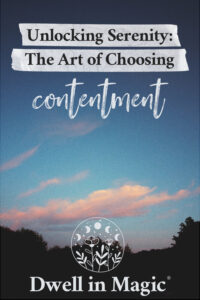


Kathy
As always, your newsletters are such a gift - great thoughts to ponder! Thank you 🩷
Jessica Dimas
Thank you so much, Kathy! 🙏